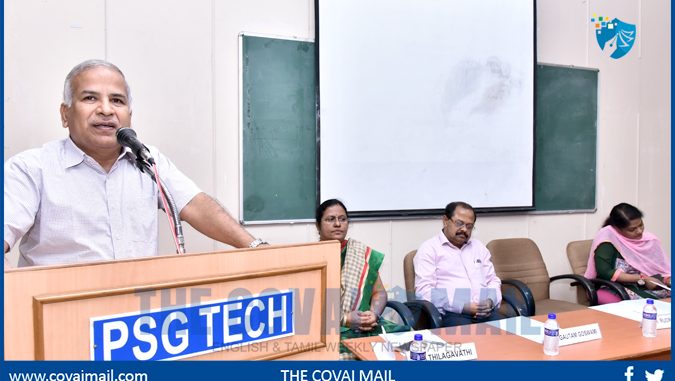
PSG College of Technology had organized a Stakeholders Workshop on “Technologies to Reduce Emission in Textile Industries” in association with TIFAC (Technology Information Forecasting and Assessment Council) recently at PSG College of Technology, Coimbatore, India.

Regional stakeholders encompassing industry and academia (50 persons) attended the workshop for identifying potential technologies to address environmental issues and energy conservation and to map them with technological solutions.
Dr.G.Thilagavathi, Professor & Head, Department of Textile Technology, PSG College of Technology, welcomed the gathering. Opening remarks was given by Dr.R.Rudramoorthy, Principal, PSG College of Technology who insisted on the Industry-Institute interaction for effective inputs for the project. The main objectives of the workshop were briefed by Dr.Gautam Goswami, Scientist F and Head-Technology Vision 2035 Programme. A hand on exercise on technology prioritization for various sectors of textile value chain such as spinning, weaving and textile chemical processing was conducted by the TIFAC team, Dr.Goswami and Mrs.Jancy.A. Prof.Radhakrishnan explained the importance for industry participation in this exercise and requested industry for a whole hearted participation. The industry participants were excited to participate in this initiative of the Government of India. The participants had done the exercise of completing the ‘Technology Scoring Sheet’ given by TIFAC by mapping the potential areas and technologies with the economical and sustainable criteria. This was followed by brainstorming session for exploring new ideas and sustainable technologies for energy conservation in spinning, weaving and textile chemical industry and the outcome was recorded. Some interesting suggestions for further pursual are automation in textile manufacturing process, value addition of waste products and sludge disposal and use. Industry representatives thanked TIFAC and PSG College for this opportunity for sharing views and also best practices. The outcome of this report will be an input to Biennial Update Report (BUR-II), which will be submitted to MoEF&CC for further action.

